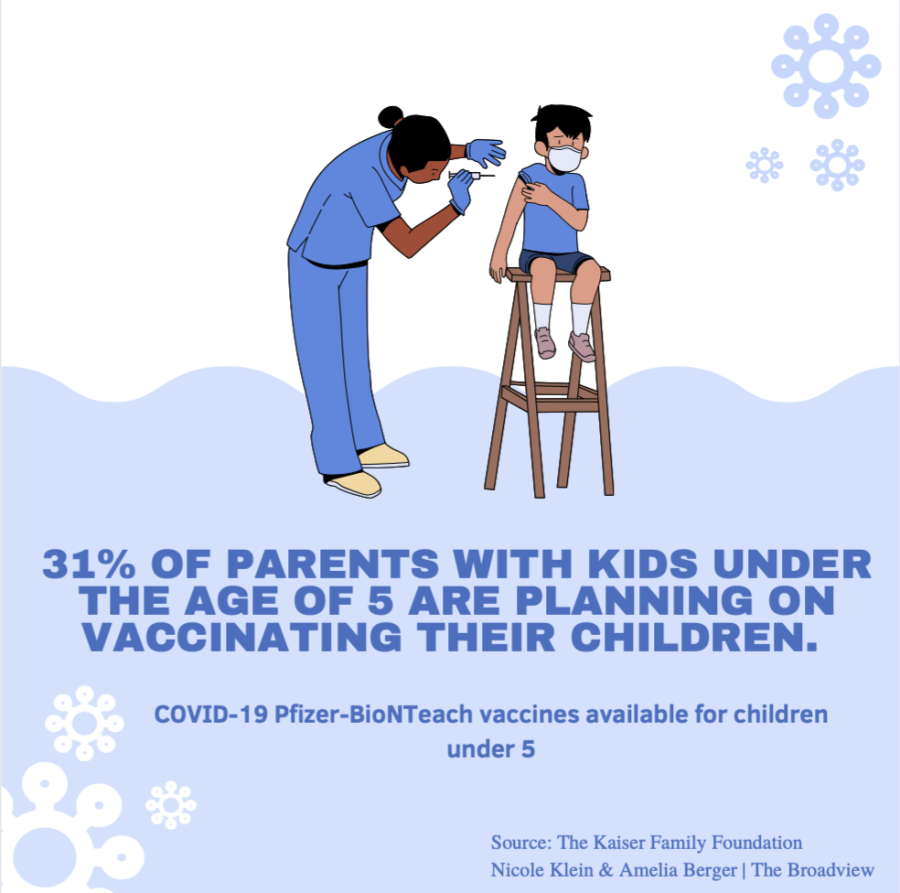Pfizer vaccines available for children under 5
Lower form eligible for further vaccination
February 3, 2022
WEB EXCLUSIVE The Biden Administration agreed as of yesterday to distribute Pfizer vaccines for children ages five and under by March.
“I think it’d be great for younger kids to get the vaccine,” freshman Amanda Telfer said. “Once they’re vaccinated, I think it will help lower the spread, especially for families with little kids.”
31% of parents with kids under the age of 5 are planning on vaccinating their children, according to the Kaiser Family Foundation. Many countries such as England, France, Ireland, and the Netherlands have loosened their COVID-19 traveling restrictions as COVID-19 rates decrease, according to the U.N. health agency.
“My younger cousins will get the vaccine,” freshman Nandika Bhatnagar said. “The severity rate is going down so hopefully it will be treated like a normal flu.”
13.4% of children 5-11 years old reported a fever reaction after the second dose of their COVID-19 vaccination, according to the Centers for Disease Control and Prevention. Fever, headaches and pain are all common side effects for most individuals after receiving their second dose, according to the CDC.
“I haven’t been listening to the news, instead I look at the data myself on COVID updates,” physics teacher Matthew Woodard said. “I personally think that the risk-reward ratio doesn’t support kids under five getting the vaccine.”
Children ages 5 to 11 that received the Pfizer-BioNTech COVID-19 vaccine were administered a special formulation with a smaller needle and dosage.
“I feel that it is necessary for even younger kids to be vaccinated so they can feel safer attending school and it will lower everyone’s chances of getting COVID,” junior Anya Riney-Niewiadomski. “Our school community offered Pfizer vaccines for the high school and I hope they continue to offer them to students in the lower grades
In the United States, COVID-19 cases are currently at 540,000 each day compared to 800,000 in mid-January, according to Johns Hopkins University.
“It’s important to remember that when we are vaccinated you’re not only protecting yourself but also others, ” Telfer said. “ If more people got vaccinated hopefully this could put less of a toll on our communities and help our current pandemic become an endemic.”










